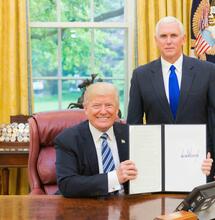New Cannabis Trials for Epilepsy

Researchers are to undertake a four-year research task that looks at the results of high-CBD oil for children living with severe forms of Epilepsy.
The UMC Utrecht Brain Center, in partnership with various associations in the Netherlands, will obtain about €1.4 million from the Dutch government. Prior research shows that CBD decreased the frequency and severity of seizures in children with distinct epilepsy-related syndromes.
Investigators will dispense whole-plant high-CBD oil, Bedrolite, from the Dutch Transvaal pharmacy. Fifty willing volunteers will enter the trial, which will begin this summer.
The study will examine whether the oil effectively decreases the frequency of seizures. In addition, other "quality of life markers" will be monitored, such as the length of attacks, quality of sleep, and alertness.
"Our research focuses on individuals. Instead of looking at a group, we look at whether the drug is effective per patient. For example, we want to investigate whether the number of attacks decreases. Still, we also pay attention to other important outcomes for a patient such as a change in alertness or a better night's sleep." pediatric neurologist and lead researcher Floor Jansen.
Intractable Epilepsy is a U.K. charity that fundraises to help families pay for private cannabis prescriptions. They have stated that they would welcome a contribution from the U.K. that matches the €1.4 million promised by the Dutch government for randomised control trials (RCTs) of Bedrocan cannabis products.
Alongside RCTs, "Intractable Epilepsy" is pursuing an observational investigation into the consequences of whole-plant cannabis oils on people who have already experienced some success with the compound.
"It would be a good move by the government and the NHS to partake in these trials, to build the evidence base that over 50 children have proven over the last four years." - Spokesperson for Intractable Epilepsy
The study is due to launch this summer, and the first patients are predicted to start their treatment by the end of 2023.







